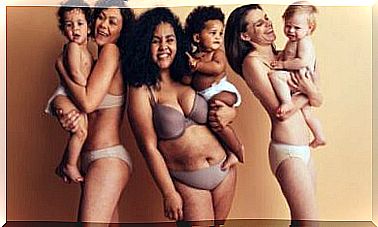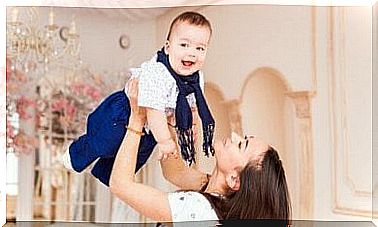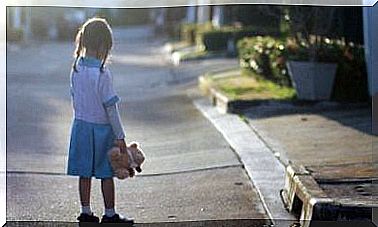6 Guidelines For Caring For A Premature Baby
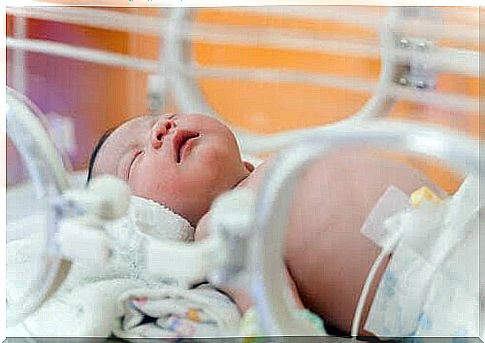
Caring for a premature baby requires more attention than caring for a baby born after a full-term pregnancy. Therefore, there are several guidelines one should follow to do it in the best way.
It is important to remember that premature babies will go through different situations that we as parents need to pay close attention to. Their breathing, for example, can vary drastically.
It is important to observe their normal breathing patterns. If you notice any variation, contact your pediatrician immediately.
When observing how the baby is breathing, pay special attention to the movements of the chest, the number of breaths per minute and the sounds that the baby makes when he or she breathes.
Guidelines for caring for a premature baby
The temperature in the room
The temperature in the baby’s room should be between 20-30 degrees Celsius. If you have a central air conditioning system, you may need a humidifier.
The child should not be in environments with smoke. Smoke can have major negative consequences on their health.
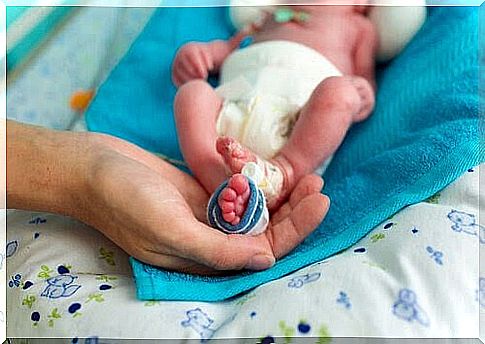
Visit
A premature baby is more sensitive and therefore more likely to be infected with diseases. Therefore, it is important that you do not receive too many visits during this time. Family members and friends must always stay at a safe distance.
If a family member or friend has a cold or flu, extra precautions must be taken. They should avoid coming into contact with the child. In the same way, as a mother, if you are ill, you should use a respirator when breastfeeding.
Excursions with a premature baby
When caring for a premature baby, it is important to be careful about excursions, especially during the first few weeks . Make sure the baby grows properly and feels good before taking them out for walks.
Always consult your pediatrician if you have any doubts. Avoid taking your child to places with crowds and crowds.
Hygiene
A premature baby is at greater risk of developing respiratory syncytial virus, or RSV, which is similar to a common cold.
To prevent possible infections, you must take hygienic measures such as washing your hands frequently, using disposable washcloths, cleaning and disinfecting toys and keeping their environment clean.
It is important to avoid preschools. Decorate a special room for the child at home.
Feed
Because their suction muscles are so weak, premature babies need more time to eat. Therefore, they should also be offered food at short intervals throughout the day.
If they use a bottle, you should choose a softer pacifier. If you notice that breathing stops or they change color during feeding, stop feeding, hold them up and give them light pats on the back.
Crying
A premature baby can cry for up to 6 hours a day. Parents must try to learn to interpret their child’s crying. They may cry because they are hungry, tired or because they feel uncomfortable for some other reason.
If you think they are crying for long periods, contact your pediatrician.

When should you see your doctor?
Parents need to pay close attention to dangerous situations. If you notice anything abnormal or unusual about your child’s condition or behavior, contact your pediatrician immediately.
Here are some symptoms that you need to pay special attention to:
- Difficulty breathing.
- Difficulty waking up.
- If the skin color changes, especially on their face.
- Fever.
- Temperature too low.
- Abnormal eye movements.
- Absent gaze or that the child does not follow you with the gaze.
- If the child does not urinate or poop.
- Crying for no reason for long periods.
- When they do not eat or eat too little.
Visits to the doctor
Premature babies need special follow-ups. Follow-ups are especially necessary for children who weigh less than 1,500 grams at birth. Their vision and hearing should be checked regularly, and also the development of the nervous system.
Pay attention to their psychomotor development, when they smile, sit up and take their first steps.
Their language development and muscle strength should also be monitored. Some premature babies require speech therapy or physical therapy as they get a little older.
In summary, parents of premature babies need to pay close attention to their children’s signals to notice if something is abnormal during the first few days at home.
Use our tips to take care of your premature baby and to guarantee his or her health.




